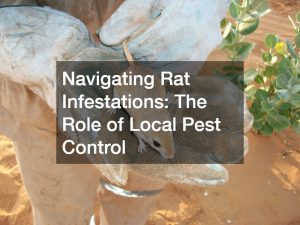- Soil quality, watering, sunlight, fertilization, proper mowing, and pest control are vital for lawn health.
- Fertilization is critical, with nitrogen, potassium, phosphorus-based fertilizers, and organic options being beneficial.
- Mowing requires carefulness to avoid scalping the lawn, which inhibits growth.
- Prompt pest control, involving regular checks and professional extermination, protects against infestations.
A lush and healthy lawn adds to the charm and value of your home, but achieving and maintaining this requires a careful balance of several factors. As a homeowner, you should be aware of the following significant factors that impact your lawn’s health to ensure that your greens feel and look their best at all times.
Soil quality
The soil quality under your lawn is the foundation of a healthy garden, and a lack of nutritious elements can result in various issues like lack of growth, poor health, and disease vulnerability. A soil test is an easy way to determine the quality of your soil. It gives insight into the pH level, texture, and nutrient imbalance, enabling you to know the steps required to enhance the soil.
Watering
Watering is essential for lawn health, but it’s critical to do it right. Overwatering can cause rot and disease, while underwatering can lead to brown and patchy lawns. Typically, your lawn should get around one inch of water every week. Consistent watering also means avoiding soaking your lawn at once, which can often lead to runoff and water waste. Watering deep and less often is suggested in most cases.
Sunlight
Lack of sunlight can lead to poor growth and damage to the lawn, while too much sunlight can cause scorching and drooping. Before planting your lawn, be sure to understand the ideal amount of sunlight it needs. Typically, most grasses require five to six hours of sunlight each day, although this can vary depending on the type of lawn you have.
Fertilization

Just like any other plant, your grass requires nourishment in the form of fertilizer. Fertilizers give your lawn needed nutrients, such as nitrogen, potassium, and phosphorus, which can help it thrive and remain lush. However, it is essential to use the correct type of fertilizers to ensure that you are not causing any harm to your lawn. Some of the best fertilizers you should look into include the following four:
Nitrogen-based fertilizers
Nitrogen is a critical nutrient that helps your lawn grow and stay vibrant. Nitrogen-based fertilizers are the most common type, as they help grass grow lush and green.
Potassium-based fertilizers
Potassium helps strengthen your grass’s roots, enabling it to better absorb water and nutrients. Fertilizers with potassium can also help promote healthier growth and reduce disease vulnerability.
Phosphorus-based fertilizers
Phosphorus helps promote the growth of healthy roots and assists in better absorption of essential nutrients. Phosphorus-based fertilizers are especially beneficial for young lawns, as they help them take a stronghold in their environment.
Organic fertilizers
Organic fertilizers are a great way to add natural nutrients to your lawn while avoiding the risk of over-fertilization. These are made from natural sources like compost and manure and can help promote healthy growth without damaging the environment.
By fertilizing your lawn, you can make sure it stays healthy and vibrant for years to come.
Proper Mowing
Mowing your lawn is an essential part of lawn maintenance, and doing it right can be the difference between a healthy, vibrant green lawn and a patchy one. It’s crucial to go easy on the blades and avoid cutting the grass too short, as this can lead to scalping the lawn, which inhibits growth.
Pest Control

Pest infestation is a major bane of lawns, and it’s essential to take steps to prevent this from occurring. This includes regularly checking for pests like grubs, moles, and bugs that can damage and kill your grass. If you notice any signs of an infestation, be sure to address them immediately by calling professional exterminators.
They have the tools and skills to help you eliminate pests and protect your lawn from further damage. For example, professional exterminators have access to advanced insecticide sprays that can rid your lawn of all types of pests. These insecticides are safe to use and don’t cause any harm to your grass. They’re effective in preventing and eliminating pests from your lawn.
Maintaining a healthy, lush lawn is a labor of love, requiring a careful balance among several factors such as soil quality, watering, sunlight exposure, fertilization, mowing, and pest control. It’s a delicate equilibrium that involves understanding the unique needs of your lawn and tailoring your care routine accordingly.
With the proper knowledge and tools, you can transform your outdoor space into a verdant paradise, a testament to your dedication and care. Remember, a well-maintained lawn is a joy to behold and enhances the overall aesthetic appeal and value of your home.




